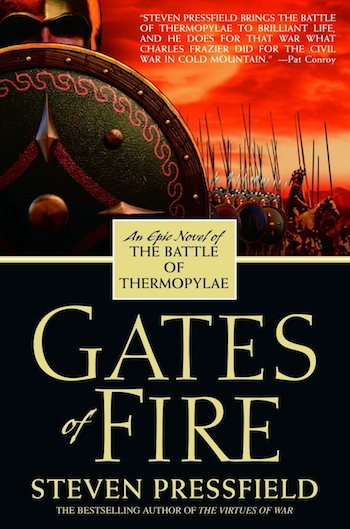I posted my initial reaction yesterday to the shooting of 21 people, including 19 children, at Uvalde on Tuesday. Since then, a lot has emerged that's deeply troubling, to say the least.
The first point at issue is the conduct of local police in response to the incident. There's video shot at the scene of Uvalde police not only refusing to enter the school in an attempt to stop the shooter, but actively preventing parents from doing so to try to rescue their children. Official statements are beginning to confirm some of this.
Texas Department of Public Safety Lieutenant Chris Olivarez said in a Thursday interview with CNN that the first few officers who entered Robb Elementary School after the 18-year-old shooter Salvador Ramos were met with gunfire and retreated to avoid being shot and killed.
“At that point, if they pursued it any further — not knowing where the suspect was at — they could’ve been shot; they could’ve been killed and, at that point, that gunman would have the opportunity to kill other people inside that school,” Olivarez told host Wolf Blitzer.
There's more at the link.
If this report is accurate - and so far, there's no reason to believe it isn't - then accusations of cowardice against the cops concerned are no more than they deserve. Indeed, the claim that cops retreated because "they could’ve been shot; they could’ve been killed and, at that point, that gunman would have the opportunity to kill other people inside that school" is ludicrous. At that point, the gunman DID have the opportunity to kill others, BECAUSE the police retreated!
When you swear an oath to protect and serve the public, you don't simultaneously swear an oath never to put yourself at risk while doing so. The latter goes with the territory of the former. A policeman's job is, by definition, a dangerous one, and there's no way to make it anything other than that. I want to know what the official departmental policy(ies) of the Uvalde police force was/is concerning such crimes, and whether they were followed. It looks very bad for the force, and for responding officers, right now.
The shining exception(s) is/are, of course, those law enforcement personnel (reportedly Border Patrol officers) who responded no matter what the risk to themselves. For example:
Jacob Albarado had just sat down for a haircut when he received the horrifying message from his wife, Trisha, a fourth grade teacher at the Uvalde, Texas elementary school, he told The New York Times.
“There’s an active shooter,” she wrote. “Help,” she sent before sending a chilling: “I love you.”
He immediately leapt out of his seat, grabbed the barber’s shotgun and sped off towards the school.
. . .
A tactical team was preparing to enter the school where the killer was located when Albarado arrived at the scene. Desperate to get his daughter and wife out, he made a plan with other officers to try and enter the school and evacuate as many students as possible.
He said he entered the wing of the school where he knew his daughter was located, and as he searched for her began “clearing all the classes in her wing,” he told The Times.
Two officers provided cover with guns drawn while two others guided dozens of “hysterical” children and teachers out to the sidewalk, he said.
When Albarado finally saw his 8-year-old daughter, Jayda, they embraced but he kept moving forward to bring more students to safety.
Again, more at the link.
One can only congratulate and thank those officers for their courage in putting their own lives at risk to save others. One can also wish that the officers who initially responded to the crisis had shown the same courage. It appears at present that, because they didn't, twenty-one innocent lives were lost.
More troubling are the renewed calls for gun control legislation that have (inevitably) followed this tragedy. Some, from anguished parents mourning the loss of their children, are entirely understandable, based on emotion rather than logic. Others, from politicians, journalists and pundits seeking to exploit this tragedy, are beyond the pale - almost literally dancing in the blood of those who died. As Tucker Carlson complains:
A mass shooting is just too tempting a moment for [our leaders] to demagog. The public is often grieving and in shock, so it's the perfect moment for the usual opportunists to leap forward and cast blame on their political opponents, to seize all the power they can while the country is too traumatized to notice. You almost never hear anyone in Washington ask what happened. Instead, it's always a race to see who can benefit politically.
. . .
These ghouls drawing politically convenient conclusions, accusing people who have no connection whatsoever to this massacre, of murder, all on the basis of no evidence, and then when the evidence emerges and it doesn't comport with the politically convenient story they want to tell, they simply ignore it.
But the rest of us should not ignore it. We should not avert our gaze. We should demand the truth. We should demand to know what happened. The children who are murdered deserve at least that.
More at the link.
What no politician or commentator appears to be asking is whether more legislation, regulation, etc. would have succeeded in preventing any mass shootings of this kind. That's my litmus test. Show me any proposed legislation or regulation concerning firearms, meant to prevent future tragedies of this or any other kind, and my first response will be: "Show me how this would have prevented/will prevent such tragedies." If you can't show me, the legislation or regulation is pointless. It's yet another case of "Don't just stand there - do something!", even if the something will be completely ineffectual.
I'm unashamedly pro-Second Amendment, and always will be. The trouble is, too many gun control rules and regulations already infringe on that right, to the point that it's almost legislated out of existence in some localities. (Take a bow, New York City - although there's hope that a pending SCOTUS ruling may go some way towards rectifying things there.) Other infringements on other enumerated rights have, from time to time, been either ratified or dismissed by SCOTUS, so it's hard to argue that all constitutional rights are unfettered. Nevertheless, the basic principle appears to be that a right may not be restricted to the point that it becomes difficult to exercise it. On that basis, it's hard to figure out what new gun control legislation, prompted by the Uvalde massacre, would pass constitutional muster.
There's talk of possible national Red Flag legislation. That would only work in the case of a shooter who both exhibited warning signs, and was known to possess weapons. It would not, for example, have stopped the Sandy Hook massacre, where the shooter - not previously "flagged" as any threat to anyone, despite his aberrant behavior - murdered his own mother to gain access to the gun he used. It would also not work in cases where "red flag" behavior did not present itself, or was not reported, prior to the incident. Therefore, I'd say it could be classified as "feel-good legislation", giving the appearance of doing something positive to prevent such crimes, but in reality not stopping them at all. That's the acid test as far as I'm concerned, even without considering enumerated rights. If the proposed law or regulation won't help, why pass it in the first place?
Gun bans or confiscation won't work. Not only would they disarm law-abiding citizens as well as actual (or potential) criminals, there are far more guns in America than there are people. It's been that way for a long time now. Nothing will change that. That genie is long since out of the bottle, and we can't cram it back inside again. There are far too many guns out there to confiscate all, or even most, of them.
Furthermore, I, for one, will refuse to allow my constitutional rights to be trampled in the name of preventing crime by someone else: and I think the majority of Americans feel the same. The guns I own at present have never (AFAIK) killed or injured anyone, and I hope and pray they never will - but they have defended me in the past, and put food on my table, and they currently provide security for my wife and I every day. I regard all those things as necessities, not luxuries.
I have no other answers. I can only "weep with those who weep" in Uvalde, to use the Biblical standard. We all share - or should share - their grief. As to what to do next . . . what - if anything - will actually work to prevent this happening again? If you, dear reader, have any ideas, let's hear them.
Peter
EDITED TO ADD: Larry Lambert notes: "Apparently, the kids at the school were in large part, illegal aliens, so the school staff didn’t want a school resource police officer present on campus. True/untrue, who knows at this point?"











